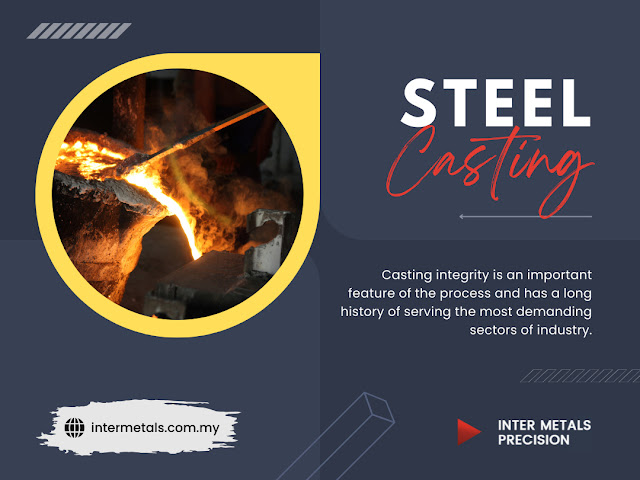Precision Casting: Definition and Its Extensive Utilization Across Sectors!
Precision casting, also known as investment casting, is a versatile manufacturing process that has been utilized across various industries for centuries. This technique allows the creation of complex and detailed parts with remarkable precision.
In this blog, we'll delve into the basics of precision casting and explore its extensive utilization across different sectors.
What is Precision Casting?
Precision casting is a manufacturing process that dates back to ancient civilizations. It involves the creation of intricate and high-quality components by pouring molten metal into a mold, often made of ceramic or wax (Loss wax casting), to create a near-net shape part.
The process is renowned for its ability to produce detailed, intricate, and dimensionally accurate parts. The end product usually requires minimal post-processing, resulting in a smoother and more efficient production process.
The Precision Casting Process
1. Pattern Creation: The process begins with creating a pattern, typically made from loss wax or other materials, replicating the final part's shape.
2. Assembly: These patterns are then assembled into a gating system, creating a tree-like structure that will serve as the path for the molten metal.
3. Investment: The assembly is dipped into ceramic slurry and coated with fine ceramic sand multiple times, creating a ceramic shell around the pattern. This process is repeated to achieve the desired shell thickness.
4. Dewaxing: The ceramic-coated assembly is heated, causing the wax to melt and flow out; leaving a cavity that matches the pattern's shape.
5. Firing: The ceramic shell is fired at high temperatures to further harden it and remove any remaining traces of the wax.
6. Pouring: The heated ceramic shell is placed in a casting pit, and molten metal is poured into the cavity. For example, if you need steel casting, the specific steel alloy is melted to its liquid state and carefully poured into the preheated ceramic mold.
7. Cooling and Breakout: The ceramic shell is broken away once the metal solidifies, revealing the finished part.
Extensive Utilization Across Sectors
Precision or lost wax casting has applications in various sectors due to its ability to create high-quality, intricate components.
Let's explore some key sectors where precision casting is extensively utilized.
Aerospace
The aerospace industry relies heavily on precision casting for critical components, such as turbine blades, engine components, and structural parts. The intricate shapes and high-performance demands of these parts make precision casting an ideal choice.
Automotive
In the automotive industry, precision casting is used to manufacture engine components, transmission parts, and decorative components. Its ability to produce complex shapes with fine details and high strength improves performance and fuel efficiency.
Medical
Precision casting is crucial in the medical sector for producing intricate and biocompatible components like dental implants, orthopedic implants, and surgical instruments. The high precision ensures that these components fit perfectly and function effectively.
Energy
The energy sector utilizes precision casting for critical parts in power generation, including gas and steam turbine components. Creating highly efficient and durable components is essential for maintaining power plant reliability.
Electronics
Precision casting is also applied in the electronics sector for producing heat sinks and specialized components. The process allows for the efficient removal of heat, contributing to the longevity and reliability of electronic devices.
Transportation
In the transportation sector, precision casting is utilized for manufacturing parts in trains, ships, and other vehicles. Its ability to produce lightweight yet robust components enhances fuel efficiency and overall performance.
Endnote:
Precision casting, including lost wax casting, plays a pivotal role in modern manufacturing. Its versatility and ability to produce high-precision components with minimal post-processing make it a valuable technique in various industries.
As technology advances and materials become more diverse and specialized, precision casting is likely to remain an integral part of the manufacturing landscape, contributing to developing innovative products and improving existing ones in numerous sectors!
To know more about precision casting and which industries use this, visit our website!
Find Us On Google Map: (Inter Metals Precision SDN. BHD.)

Comments
Post a Comment